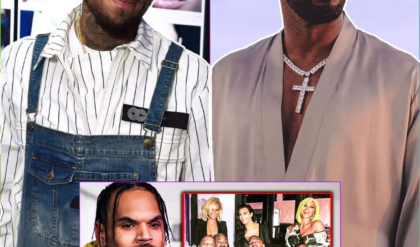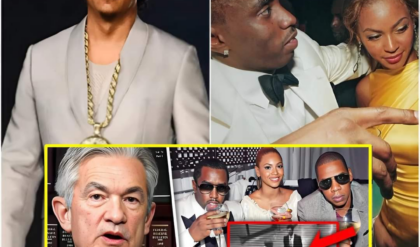
In a move that has stunned fans and industry insiders alike, the Academy of Country Music (ACM) has reportedly banned Beyoncé from its events for life. The decision has ignited a firestorm of debate about genre boundaries, inclusivity, and the evolving nature of country music.
The Ban Announcement
The ACM’s decision to ban Beyoncé, announced through an official statement, cited a desire to preserve the integrity of the genre. “Beyoncé hasn’t been country in years,” the statement read. “While we respect her immense talent and contributions to music, we feel it is crucial to maintain the authenticity of country music.”
The ban follows Beyoncé’s controversial performances and her album “Lemonade,” which included the country-inspired track “Daddy Lessons.” Despite her efforts to honor the genre, including a performance at the 2016 Country Music Association (CMA) Awards with the Dixie Chicks, the ACM has decided that her involvement does not align with their vision of country music.
Industry Reactions
The ACM’s decision has polarized the music community. Some industry veterans and country purists support the move, arguing that Beyoncé’s style and background do not fit traditional country music. “Country music is a way of life,” said a prominent Nashville producer. “It’s about storytelling and roots. Beyoncé, as talented as she is, doesn’t embody that.”
However, many artists and fans have criticized the ban as exclusionary and outdated. Grammy-winning country artist Maren Morris tweeted, “Banning Beyoncé is a step backwards. Music should be about breaking barriers and bringing people together, not shutting them out.”
Beyoncé’s Country Journey
Beyoncé’s foray into country music began with “Daddy Lessons,” a track that blends elements of country, blues, and southern rock. The song received praise for its authenticity and storytelling, hallmarks of the country genre. However, it also sparked controversy, with some critics questioning her motives and authenticity.
Her performance at the CMA Awards, which featured a collaboration with the Dixie Chicks, was intended to bridge musical worlds and celebrate the diversity of American music. While many applauded the performance, others felt it was an inappropriate appropriation of country culture.
The Broader Implications
The ban on Beyoncé raises important questions about the boundaries of musical genres and who gets to define them. In an era where musical styles are increasingly fluid, the ACM’s decision reflects a tension between maintaining tradition and embracing change.
For some, the move is seen as a necessary step to protect the heritage and purity of country music. For others, it represents a missed opportunity for the genre to evolve and incorporate diverse influences
.
Public Reaction
Fans have taken to social media to express their opinions on the ban. Hashtags like #LetBeySing and #CountryMusicForAll have trended on Twitter, with supporters arguing that Beyoncé’s talent transcends genre labels and that her contributions should be celebrated, not dismissed.
Critics of the ban have also pointed out the historical exclusions within country music, highlighting the genre’s roots in African American music and the need for greater inclusivity.
Conclusion
The ACM’s decision to ban Beyoncé from its events has sparked a significant debate about the nature of country music and its future direction. While some see the move as a necessary defense of tradition, others view it as a regressive step that fails to recognize the genre’s potential for growth and diversification.
As the music industry continues to evolve, this incident serves as a reminder of the ongoing challenges in balancing respect for tradition with the need for innovation and inclusivity. Whether Beyoncé’s ban will lead to a broader reevaluation of these issues within country music remains to be seen, but it has undoubtedly ignited a crucial conversation about the future of the genre.
News
Henry Cavill’s Witcher & Superman Replacement Already Avoided The Mistake That Killed The Original Franchise – S
Henry Cavill already has a replacement for The Witcher and Superman thanks to his role in the Highlander reboot, and this is already avoiding the mistake that killed the original franchise. Henry Cavill is one of the most popular action stars thanks to his roles in movies…
Goodbye DC and Superman, Henry Cavill reveals his favorite role if he joins MCU – S
Henry Cavill has expressed his favorite role if he has the opportunity to collaborate with Marvel Studios. Henry Cavill has officially said goodbye to the role of Superman after the DCEU ends at the end of 2023 to open a…
Kim Kardashian Goes Into Hiding After Freak0ff Video Of Her And Diddy Gets Leaked Ok, so things just got a whole lot messier for Diddy. The world witnessed him in his true form as a video of him putting his hands on Cassie made rounds on the internet. – S
It made a lot of folks hella uncomfortable. But as Diddy’s future started to look grim, he thought of a strategy. What’s worse than Diddy being exposed for his crimes? Fans discovering names of beloved celebrities who knew about…
Chris Brown LEAKS The List Of Major Names INVOLVED in Diddy’s Ab*se! | DIDDY IS DONE! – S
**Diddy’s Troubles: Allegations and Revelations** Sean “Diddy” Combs, the music mogul behind Bad Boy Records, finds himself embroiled in a storm of controversies and allegations that threaten to tarnish his reputation irreparably. The latest revelations, sparked by comments from…
HOT NEWS: The Feds LEAK New EVIDENCE of Jay Z P!MPING Beyonce To Diddy?!? – S
The Feds LEAK New EVIDENCE of Jay Z P!MPING Beyonce To Diddy?!? Amidst the swirling vortex of celebrity gossip and scandal, a bombshell revelation has sent shockwaves rippling through the entertainment industry. The latest development involves none…
Kanye Leaks Footage Of Drake Getting Clapped By Lucian Grainge – S
Kanye Leaks Footage Of Drake Getting Clapped By Lucian Grainge Girl, Kanye is back at exp0sing shady celebs, and y’all know that whenever Drake spills the tea, he ALWAYS comes correct with the tea. He has a track history…
End of content
No more pages to load











